This week we dug deep as we discussed what holiness means and how we can tap into it. We also began considering the concept of a soul which sparked a lot of amazing learning.

During Schulchanot Avodah kiddos were playing, talking, creating, and problem-solving. Two students worked together in a conversational exchange to learn about how they each thought about holiness.
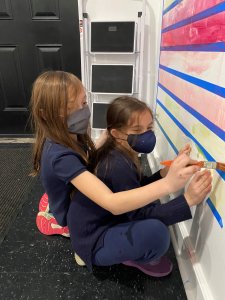
Interview between two students:
Student A: What does holy mean?
Student B: It means something or someone who, to you, feels like non-physical light.
Student A: Where can we find holiness?
Student B: Everywhere.
Student A: What is holy to you?
Student B: Friendship.
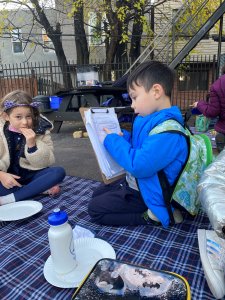
Student B: What does holy mean?
Student A: Something special, but more.
Student B: Where can we find holiness?
Student A: Everywhere.
Student B: What is holy to you?
Student A: My family.
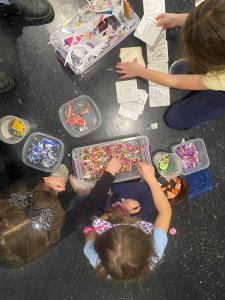
After this interview, the kiddos sculpted each other’s answers out of playdough. It was such a joy to watch learners extend their conversation from snacktime learning and go deeper. As I observed these two interviewing each other there was a sense of curiosity and true listening as they eagerly recorded each other’s answers.
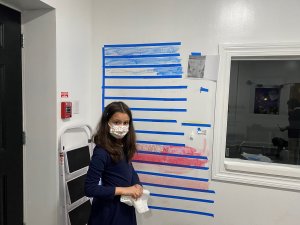
During snacktime learning kiddos sat in a circle on picnic blankets as we unpacked what holiness means. We named that most of us have heard about this word in a Jewish context, but holiness doesn’t exclusively have to do with being Jewish.
We came up with a list of things that to us are holy:
- Family
- Nature
- Torah
- Menorah
- Animals
- Love
- Makom
- Learning
- Art
As we furthered our discussion about holiness we introduced the concept of a soul and reflected on the responsibilities that come with being holy and having a soul. Learners considered what it means to have a soul. Kiddos decided that things that are alive have souls and are holy but do not necessarily act in a holy way. One learner shared that “a person is always holy but racism is not holy.” In a spirited debate Nitzanim (2nd-4th grade) discussed whether trees and water have souls. They decided that trees do have souls and water itself does not but the matter inside of water does.
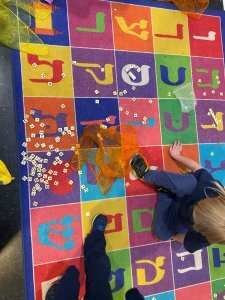
During Schulchanot Avodah we created vesicles for our souls with upcycled materials from our materials library. We thought about our bodies as homes for our souls and imagined what we would want alternative homes for our souls to look like. Seeing the meticulous and inventive creations materialize was such a joy.
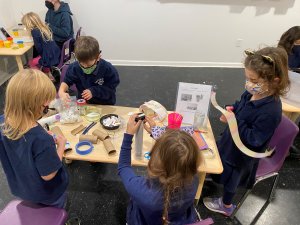
Next week we look forward to learning about our names, various modalities for prayer, and cultivating holiness in everyday moments.
